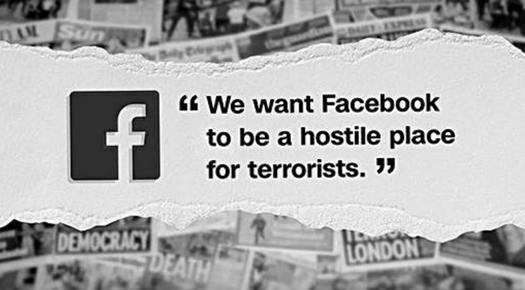
Facebook is the most popular social networks with more than 1.94 billion monthly active users as of March 2017. It has affected the social life and activity of people in various ways. Facebook allows people using computers or mobile phones to continuously stay in touch with friends, relatives and other acquaintances wherever they are in the world, as long as there is access to the Internet. That’s the reason why this social media has a responsibility to struggle with more and more present terrorism.
Facebook said it has 150 people on its counterterrorism team, constantly fine-tuning tactics for taking down terrorist content. Artificially intelligent tools on Facebook can check to see whether it matches "a known terrorism photo or video." If it does, it won't be uploaded. It is the same system Facebook is using to fight revenge porn on the social network. In the new post on June 15 titled “Hard Questions,” two Facebook officials — a director of global policy management and a counterterrorism policy manager — outlined the company’s commitment to fight terrorism online:
Our stance is simple: There’s no place on Facebook for terrorism. We remove terrorists and posts that support terrorism whenever we become aware of them. When we receive reports of potential terrorism posts, we review those reports urgently and with scrutiny. And in the rare cases when we uncover evidence of imminent harm, we promptly inform authorities. Although academic research finds that the radicalization of members of groups like ISIS and Al Qaeda primarily occurs offline, we know that the internet does play a role — and we don’t want Facebook to be used for any terrorist activity whatsoever.
Some technical solutions used by this social network in their fight against terrorism are: image matching, language understanding, removing terrorist clusters, recidivism and cross-platform collaboration. Sometimes AI isn’t enough for detecting terrorist content and that’s why they are growing by 3,000 people over the next year — working 24 hours a day and in dozens of languages to review these reports and determine the context.
We want Facebook to be a hostile place for terrorists. The challenge for online communities is the same as it is for real world communities — to get better at spotting the early signals before it’s too late. We are absolutely committed to keeping terrorism off our platform, and we’ll continue to share more about this work as it develops in the future.
Photo Credits: Mogaz news en
